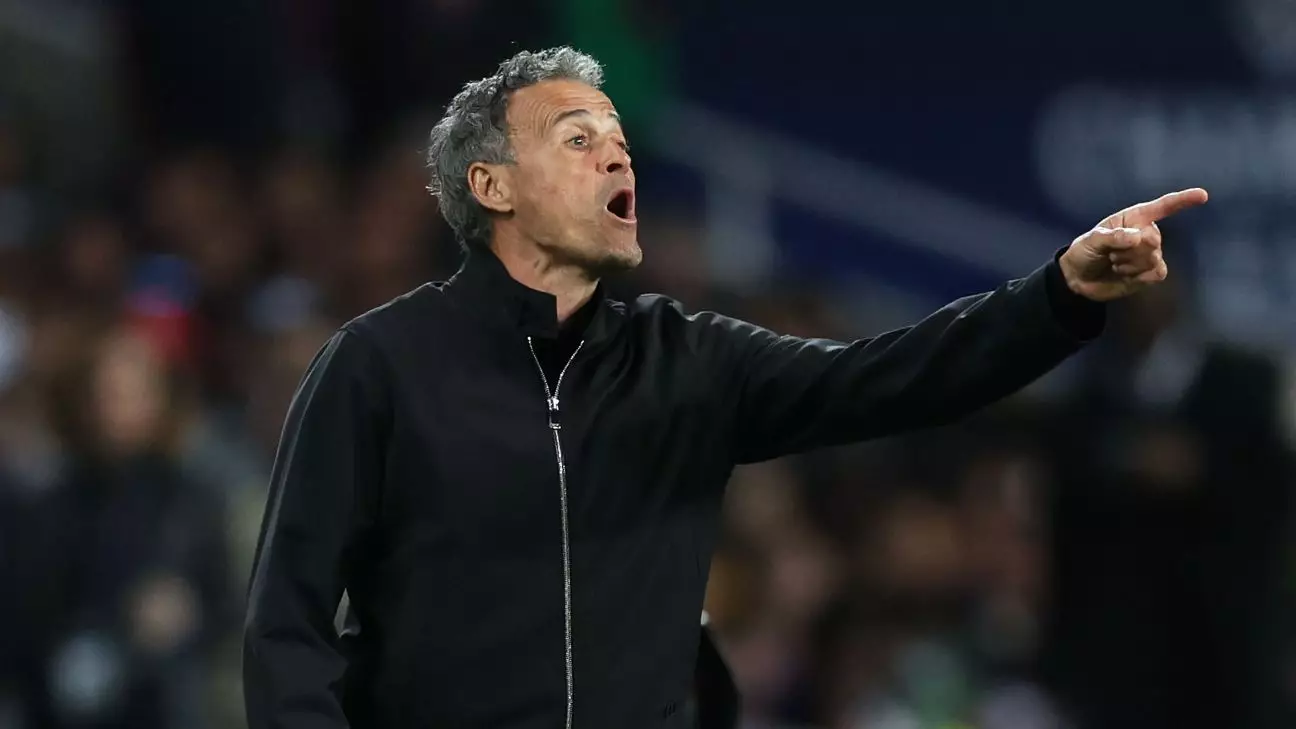In the world of football, tactical discourse often ignites intense debates among fans, pundits, and players alike. Recently, Paris Saint-Germain (PSG) coach Luis Enrique made headlines by critiquing his former club Barcelona’s approach to the game, specifically under the management of Xavi Hernández. These observations, captured in the documentary “You have no f—ing idea,” provide a thought-provoking examination of two football philosophies that have shaped modern tactics: the traditional possession game epitomized by Barcelona and the more pragmatic approach that some argue has seeped into its journey under Xavi.
Enrique’s comments reveal an underlying tension in the portrayal of Barcelona under Xavi. His assertion that the team played “long ball football like Eibar” raises questions about this storied club’s identity. Historically, Barcelona epitomized a possession-based style centered on meticulous short passing, a hallmark of their approach during the peak years under coaches like Pep Guardiola and Enrique himself. However, Enrique’s remarks suggest that Barcelona has strayed from these principles, leaning into a more direct style of play that has drawn criticism. The implication that they lack dominance and defensive solidity indicates not just a critique of tactical choices, but also a philosophical shift that some purists may find disconcerting.
The contrast between Xavi’s Barcelona and the classic approach is particularly pronounced when one considers Enrique’s own tenure at the club, during which they achieved a treble. His measured defense of his own tactical legacy serves to bolster his critique of Barcelona’s current form, suggesting that identity and style matter deeply to the game.
The context of Enrique’s comments is further illuminated by the recent Champions League clashes between PSG and Barcelona. In the quarterfinals, PSG faced a daunting challenge, losing the initial leg before rallying in the second to secure their spot in the semifinals. Enrique’s assertion that “it’s a lie to say Barcelona were better” sends a clear message; he believes that PSG’s performance should not be undermined by the narrative that has often surrounded Xavi’s team.
The emphasis on long balls and frequency of those passes from goalkeeper Marc-André ter Stegen reinforces Enrique’s point of view. By likening Barcelona’s style to that of a less celebrated team like Eibar, he seemingly dismisses any claim to superiority based solely on historical precedent or reputation. It appears that for Enrique, the pragmatic approach and hard work are paramount, particularly when it comes to the modern game, which often demands flexibility and the ability to adapt based on opponent strengths.
An intriguing dimension unveiled in the documentary is Enrique’s relationship with Kylian Mbappé, a player he regards as pivotal to PSG’s ambitions. His candid remarks about instilling a sense of leadership in Mbappé are enlightening; they illustrate how coaching styles can significantly impact player mentality and performance. Enrique’s focus on defensive responsibilities alongside offensive talents emphasizes a holistic approach to player development, suggesting that great players must be well-rounded to help realize the coach’s vision.
In one-on-one meetings, he encourages Mbappé to lead by example—indicating that skill alone is insufficient without the willingness to engage defensively and work as part of a structured team. This coaching philosophy distills Enrique’s tactical mindset, one that marries creativity with discipline.
As the documentary showcases, Luis Enrique’s time at PSG has been a blend of successes and challenges. His remarks about the difficulties faced during the clash against Barcelona, a team he once led to glory, show the emotional complexity of competition. Furthermore, seeing Xavi as a figure who embodies his once-cherished style publicly acknowledges the weight of footballing legacies in shaping modern narratives.
As PSG navigates the post-Mbappé landscape and looks to build a foundation for the future, Enrique’s reflections on style, identity, and the evolving nature of football may serve as a pivotal guide. The ongoing dialogue about tactics and philosophies continues to shape not only the teams but the broader understanding of what it means to play the beautiful game. In Enrique’s eyes, football remains a multi-faceted discipline that requires both artistry and pragmatism, a sentiment that will undoubtedly resonate with future generations of players and coaches.
